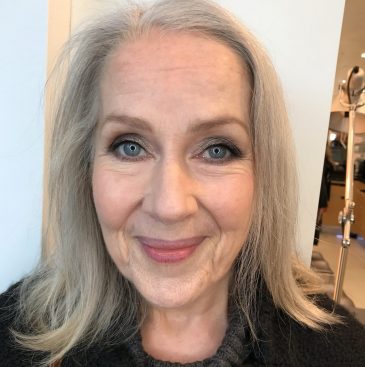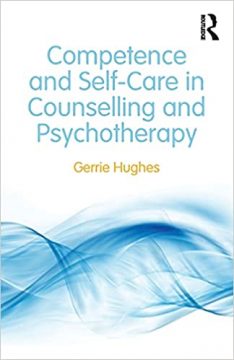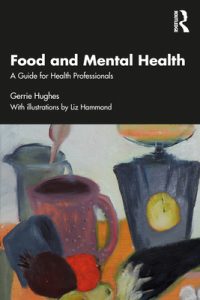Me and My Books
Painting by Liz Hammond
My Background and Experience
I began my career in British Gas, around the time that personal computers were starting to be left around on desks to see if anyone would find a use for them. I discovered a liking and an aptitude for this new technology and was soon setting up small computer systems to replace tasks that were being done manually. Then somebody decided I needed some training, so I was sent on a programme for internal consultants. This opened my eyes to a whole new way of thinking and being and I wanted so much more…
I was allowed to attach myself to the team that were running these programmes for the company and began a long process of self-development which brought me to the point of taking redundancy and beginning to train as a Gestalt psychotherapist.

This process involved a lot of personal therapy and development work in training groups and, when I started to meet with ‘real’ clients, I found out even more about myself. I had always loved reading and was one of those children who found refuge and comfort in books. But people like me didn’t become writers. All the personal development work I had been doing made me question that assumption, why couldn’t I become a writer too? I joined various writing groups, did courses and eventually undertook an MA in Creative Writing.
Competence and Self-care in Counselling and Psychotherapy
I heard that the British Association for Counselling and Psychotherapy (BACP) were looking for someone to write one in a series of Information Sheets they were producing to inform their members about best practice. This one was on the topic of competence and self-care. Therapists’ work involves supporting people who are distressed, often in crisis or traumatised, so our own wellbeing, mental health, fitness to practice and professional competence is something we take very seriously. I wrote a proposal for BACP, which was accepted. While writing the Information Sheet itself, I realised there was far more relevant material that might be supportive and informative for practitioners that could have been be included, and this eventually became my first book, ‘Competence and Self-care in Counselling and Psychotherapy’ which was published by Routledge in 2014.
Food and Mental Health: a guide for health practitioners
When my first book came out, I realised that it could be relevant for anyone who worked with people in a professional capacity, not only therapists and decided that, when I came to write another book, I would direct it at a wider readership. I knew that I would write another book, although it took several years for me to arrive at the right topic. During that time, I had the opportunity to travel in Italy, becoming acquainted with Italian attitudes to food. Although there are supermarkets in Italy, I noticed that people mostly ate the fruit and vegetables of the season, acquired from local markets where the stallholders brought in their produce from farms that were in the same region. Other specialist shops sold meat products, cheese and, of course, pasta. I began to be interested in food writing, discovered the language of flavour and texture, which I found visceral and vivid, and this opened a whole world for me of welcome and conviviality.
Then I discovered the scientific research that drew clear links between diet and mental health. I hadn’t learned about this while I was training. Indeed, I don’t think the information was available back then… But I knew I needed to know, and then I knew I needed to tell other people, which was how I came to write ‘Food and Mental Health: a guide for health practitioners’ which came out in January 2022.

